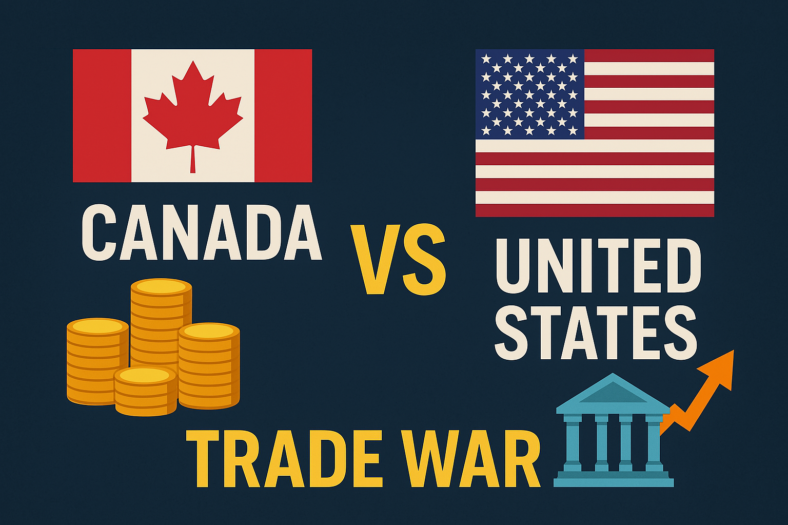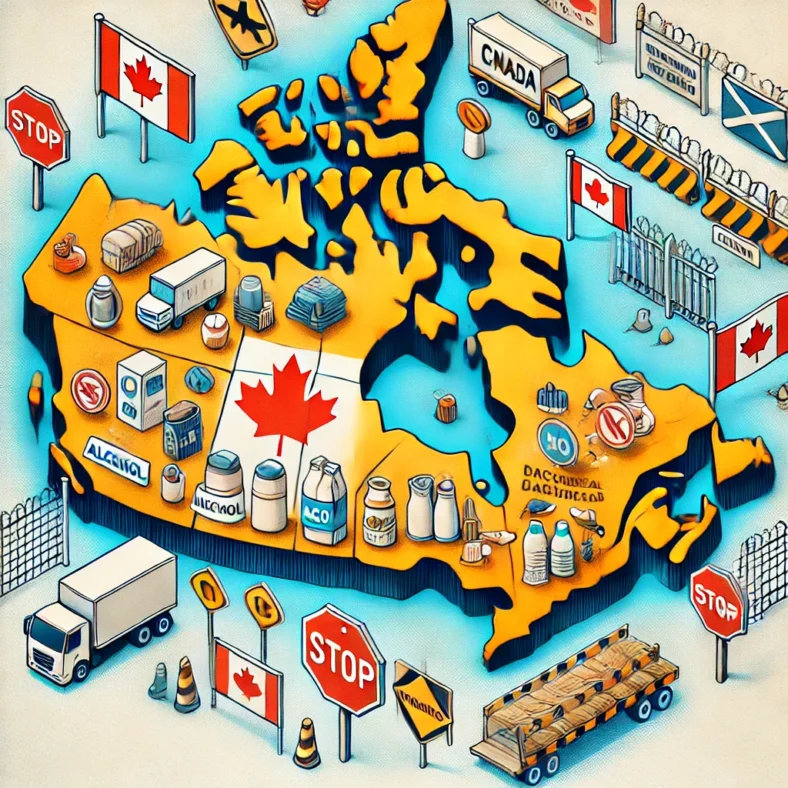In an era where financial stability is paramount, navigating through debt can be a daunting task. For many Canadians, managing multiple debts with varying interest rates, due dates, and terms can feel overwhelming. However, amidst this challenge lies a solution: debt consolidation loans. Consolidating debt can simplify financial management by combining multiple debts into a single loan with a fixed interest rate and a structured repayment plan.
In Canada, the landscape for debt consolidation loans is diverse, offering individuals an array of options tailored to their unique financial circumstances. From traditional banks to online lenders, the market is ripe with opportunities for those seeking to regain control of their finances. But with this abundance of choices comes the need for informed decision-making.
This comprehensive guide aims to demystify the realm of debt consolidation loans in Canada. Whether you’re looking to consolidate credit card debt, medical bills, student loans, or any other form of debt, this guide will provide invaluable insights into finding the best debt consolidation loan for your needs. We’ll explore the key factors to consider when evaluating loan options, highlight reputable lenders in the Canadian market, and equip you with the knowledge necessary to embark on your journey towards financial freedom.
Join us as we delve into the intricacies of debt consolidation, empowering you to make informed choices that will pave the way towards a brighter financial future.
Top Picks: Best Debt Consolidation Loans in Canada
What are debt consolidation loans?
Debt consolidation loans are financial products designed to simplify the management of multiple debts by combining them into a single loan. Instead of juggling various creditors, interest rates, and payment schedules, borrowers can consolidate their debts into one convenient monthly payment with a fixed interest rate and a structured repayment plan.
These loans can be used to consolidate various types of debt, including credit card balances, medical bills, personal loans, student loans, and more. By consolidating debt, borrowers can potentially lower their overall interest rates, reduce their monthly payments, and streamline their finances.
Debt consolidation loans typically involve borrowing a sum of money equal to the total amount of outstanding debt. This loan is then used to pay off the individual debts, leaving the borrower with only one loan to manage. The terms of the consolidation loan, including the interest rate, repayment period, and monthly payment amount, will depend on factors such as the borrower’s creditworthiness, the amount of debt being consolidated, and the terms offered by the lender.
Overall, debt consolidation loans can be an effective tool for individuals looking to simplify their finances, reduce their debt burden, and work towards financial stability. However, it’s important for borrowers to carefully evaluate their options, consider the potential costs and benefits, and ensure that they choose a loan that aligns with their financial goals and circumstances.
How do debt consolidation loans work?
Debt consolidation loans work by combining multiple debts into a single loan with more favorable terms, making it easier for borrowers to manage their finances and repay their debts. Here’s how the process typically works:
Assessment of Debt: The first step is to assess your existing debts. This includes compiling a list of all outstanding debts, such as credit card balances, personal loans, medical bills, and any other forms of debt you may have.
Research and Comparison: Next, you’ll need to research and compare debt consolidation loan options. This involves exploring different lenders, their interest rates, fees, repayment terms, and eligibility criteria. It’s important to find a loan that offers lower interest rates and favorable terms compared to your existing debts.
Application Process: Once you’ve chosen a lender, you’ll need to apply for a debt consolidation loan. This typically involves submitting an application form, providing documentation such as proof of income and identification, and consenting to a credit check.
Loan Approval: If your application is approved, the lender will offer you a loan amount, interest rate, and repayment terms based on your creditworthiness and financial situation. It’s important to carefully review the terms of the loan agreement before accepting the offer.
Disbursement of Funds: Upon accepting the loan offer, the lender will disburse the funds to pay off your existing debts. This may involve the lender directly paying off your creditors on your behalf, or they may deposit the funds into your bank account for you to use to pay off the debts yourself.
Repayment Period: With your debts consolidated into a single loan, you’ll now have a new repayment plan to follow. This typically involves making fixed monthly payments to the lender until the loan is fully repaid. The repayment period and monthly payment amount will depend on the terms of the loan agreement.
Financial Management: After consolidating your debts, it’s important to manage your finances responsibly to avoid falling back into debt. This may involve creating a budget, tracking your expenses, and practicing good financial habits such as avoiding unnecessary spending and saving for emergencies.
By consolidating your debts into a single loan, you can simplify your finances, reduce your interest rates, and potentially lower your monthly payments, making it easier to manage and repay your debts over time. However, it’s important to carefully consider the costs and benefits of debt consolidation and ensure that you choose a loan that aligns with your financial goals and circumstances.
Pros and cons of debt consolidation loans in Canada
Debt consolidation loans in Canada offer several potential advantages and disadvantages, depending on individual financial situations and goals. Here’s a breakdown of the pros and cons:
Pros:
Simplified Repayment: Consolidating multiple debts into a single loan streamlines your monthly payments, reducing the complexity of managing various creditors and due dates.
Lower Interest Rates: If you qualify for a debt consolidation loan with a lower interest rate compared to your existing debts, you could potentially save money on interest payments over time.
Fixed Repayment Terms: Debt consolidation loans typically come with fixed repayment terms, providing predictability and stability in your repayment plan. This can help with budgeting and financial planning.
Improved Credit Score: Consolidating high-interest debts with a consolidation loan and making timely payments can positively impact your credit score over time, as it demonstrates responsible financial management.
Potential Debt Reduction: By consolidating debts with higher interest rates, you may be able to pay off your debts faster and save money on interest charges, ultimately reducing your overall debt burden.
Cons:
Eligibility Requirements: Qualifying for a debt consolidation loan in Canada may require a good credit score and stable income. Individuals with poor credit or high debt-to-income ratios may struggle to secure favorable loan terms.
Origination Fees and Charges: Some lenders may impose origination fees or other charges when obtaining a debt consolidation loan, which can increase the overall cost of borrowing.
Risk of Accumulating More Debt: Consolidating debts does not address the underlying financial habits that led to debt accumulation. Without addressing spending habits and budgeting, there’s a risk of accumulating new debt on top of the consolidated loan.
Longer Repayment Period: While debt consolidation loans may offer lower monthly payments, extending the repayment period could result in paying more interest over the life of the loan compared to paying off debts individually.
Asset Risk: If you opt for a secured debt consolidation loan, such as a home equity loan or line of credit, you risk losing collateral (e.g., your home) if you default on the loan.
Before pursuing a debt consolidation loan, it’s essential to carefully evaluate your financial situation, compare loan options, and consider the potential costs and benefits. Additionally, developing a plan to address the root causes of debt accumulation and practicing responsible financial habits can help ensure long-term financial stability.
Types of debt consolidation loans available in Canada
In Canada, several types of debt consolidation loans are available to borrowers, each with its own features and eligibility requirements. Here are some common types:
Personal Loans: Personal loans are unsecured loans that borrowers can use for various purposes, including debt consolidation. These loans typically have fixed interest rates and repayment terms, making them a popular choice for consolidating credit card debt, medical bills, and other unsecured debts. Personal loans do not require collateral, but eligibility criteria often include a good credit score and stable income.
Home Equity Loans: Home equity loans allow homeowners to borrow against the equity in their homes to consolidate debts. These loans typically offer lower interest rates compared to unsecured personal loans because they are secured by the value of the home. However, they pose the risk of foreclosure if the borrower defaults on the loan. Home equity loans usually have fixed interest rates and longer repayment terms.
Home Equity Lines of Credit (HELOCs): Similar to home equity loans, HELOCs allow homeowners to borrow against the equity in their homes. However, HELOCs function more like a revolving line of credit, allowing borrowers to borrow, repay, and borrow again up to a predetermined credit limit. HELOCs often have variable interest rates tied to the prime rate, making them subject to fluctuations in the market. They can be used for debt consolidation, home renovations, or other expenses.
Credit Card Balance Transfer: Some credit card companies offer balance transfer promotions with low or zero interest rates for a limited period, typically ranging from six months to a year. Borrowers can transfer high-interest credit card balances to a new card with a lower promotional rate, saving money on interest charges during the promotional period. However, it’s essential to consider any balance transfer fees and the interest rate that will apply after the promotional period ends.
Debt Consolidation Loans from Financial Institutions: Many banks, credit unions, and online lenders in Canada offer specialized debt consolidation loans tailored to borrowers looking to consolidate their debts. These loans may have competitive interest rates, flexible repayment terms, and streamlined application processes. Borrowers can apply for these loans directly through the lender or financial institution.
Before choosing a debt consolidation loan in Canada, it’s crucial to compare loan options, carefully review the terms and conditions, and consider factors such as interest rates, fees, repayment terms, and eligibility requirements. Additionally, borrowers should assess their financial situation and determine which type of loan aligns best with their needs and goals.
Reasons why you should consolidate debt
Consolidating debt offers several potential benefits for individuals looking to simplify their finances and improve their overall financial situation. Here are some reasons why people choose to consolidate debt:
Simplify Finances: Managing multiple debts with varying interest rates, due dates, and payment amounts can be overwhelming and lead to missed payments or late fees. Consolidating debt combines multiple debts into a single loan with one monthly payment, making it easier to manage finances and stay organized.
Lower Interest Rates: Debt consolidation loans often come with lower interest rates compared to credit cards, payday loans, or other high-interest debts. By consolidating high-interest debts into a single loan with a lower interest rate, borrowers can potentially save money on interest charges and pay off debt more efficiently.
Reduce Monthly Payments: Consolidating debt can result in lower monthly payments by extending the repayment period or negotiating lower interest rates with creditors. This can provide relief for individuals struggling to make ends meet or facing financial hardship.
Fixed Repayment Terms: Debt consolidation loans typically come with fixed repayment terms, providing predictability and stability in monthly payments. Fixed rates ensure that borrowers know exactly how much they need to pay each month, making budgeting easier and reducing the risk of payment shock from variable interest rates.
Improve Credit Score: Consolidating debt and making timely payments on the consolidation loan can positively impact credit scores over time. By reducing the utilization ratio (the amount of credit used compared to the total available credit) and demonstrating responsible financial management, borrowers may see improvements in their creditworthiness.
Avoid Bankruptcy: For individuals facing overwhelming debt and financial hardship, debt consolidation can be an alternative to bankruptcy. By consolidating debts into a manageable repayment plan, borrowers can avoid the negative consequences of bankruptcy, such as damage to credit scores and potential loss of assets.
Achieve Financial Goals: Consolidating debt can help individuals regain control of their finances and work towards achieving long-term financial goals, such as buying a home, saving for retirement, or starting a business. By eliminating high-interest debt and establishing a structured repayment plan, borrowers can pave the way towards financial stability and independence.
Overall, consolidating debt can be an effective strategy for individuals seeking to simplify their finances, reduce interest costs, and regain control of their financial future. However, it’s essential to carefully evaluate the costs and benefits of debt consolidation and choose a solution that aligns with your financial goals and circumstances.
Does debt consolidation have an effect on your credit?
Debt consolidation itself typically does not hurt your credit score; in fact, it often has the potential to improve it. However, the impact on your credit score can vary depending on how you manage the debt consolidation process and your overall financial behavior. Here’s how debt consolidation can affect your credit:
Initial Impact: When you apply for a debt consolidation loan or program, the lender may conduct a hard inquiry on your credit report to assess your creditworthiness. This inquiry can temporarily lower your credit score by a few points. However, the impact is usually minor and short-lived.
New Account: When you take out a debt consolidation loan, a new account is added to your credit report. Initially, this may cause a slight decrease in your credit score due to the reduction in the average age of your accounts. However, as you make timely payments on the consolidation loan, your credit score may gradually improve over time.
Utilization Ratio: Debt consolidation can improve your credit utilization ratio, which is the amount of credit you’re using compared to your total available credit. By paying off or reducing high-interest debts with a consolidation loan, you can lower your utilization ratio, which can positively impact your credit score.
Payment History: Making timely payments on your consolidation loan is crucial for maintaining or improving your credit score. Missing payments or defaulting on the loan can have a significant negative impact on your credit score and may result in collection efforts by the lender.
Closing Accounts: If you choose to close credit accounts after consolidating debt, it could affect your credit score by reducing your available credit and potentially increasing your credit utilization ratio. However, closing accounts is not always necessary for debt consolidation, and it’s essential to weigh the pros and cons before doing so.
Overall, debt consolidation can have both positive and negative effects on your credit score, depending on how you manage the process and your financial behavior moving forward. By making timely payments on your consolidation loan, keeping credit accounts open, and practicing responsible financial habits, you can minimize any potential negative impact on your credit score and work towards improving it over time.
How to find the best debt consolidation loans in Canada
Finding the best debt consolidation loans in Canada involves thorough research, comparison, and evaluation of various loan options. Here’s a step-by-step guide to help you find the right loan for your needs:
Assess Your Financial Situation: Start by assessing your current financial situation, including your outstanding debts, interest rates, monthly payments, and credit score. Understanding your financial standing will help you determine the type of debt consolidation loan that’s most suitable for you.
Set Your Goals: Determine your financial goals for consolidating your debts. Whether you aim to reduce your monthly payments, lower your interest rates, simplify your finances, or pay off your debts faster, clarifying your objectives will guide your search for the best loan.
Research Lenders: Research banks, credit unions, online lenders, and financial institutions that offer debt consolidation loans in Canada. Look for reputable lenders with a history of providing competitive rates, transparent terms, and excellent customer service.
Compare Interest Rates and Fees: Compare the interest rates, fees, and terms of debt consolidation loans offered by different lenders. Pay attention to factors such as annual percentage rates (APRs), origination fees, prepayment penalties, and any other charges associated with the loans.
Check Eligibility Criteria: Review the eligibility criteria for each loan to ensure that you meet the lender’s requirements. Criteria may include minimum credit score, income verification, employment status, and debt-to-income ratio. Focus on lenders whose criteria align with your financial profile.
Read Customer Reviews: Look for customer reviews and testimonials to gain insights into the experiences of past borrowers with each lender. Pay attention to feedback regarding customer service, loan processing times, and overall satisfaction with the loan experience.
Consider Loan Terms: Evaluate the repayment terms offered by each lender, including the loan amount, repayment period, and monthly payment amount. Choose a loan with terms that fit your budget and financial goals, keeping in mind that longer repayment periods may result in higher overall interest costs.
Check for Flexibility: Consider lenders that offer flexibility in repayment options, such as the ability to make extra payments or adjust your payment schedule without penalties. Flexibility can be valuable if your financial circumstances change during the life of the loan.
Review the Fine Print: Carefully review the terms and conditions of each loan offer, including the loan agreement, disclosure statements, and any other documents provided by the lender. Pay attention to important details, such as late payment fees, default provisions, and the impact on your credit score.
Seek Professional Advice if Needed: If you’re unsure about which debt consolidation loan is best for you, consider seeking advice from a financial advisor or credit counselor. They can provide personalized guidance based on your unique financial situation and help you make informed decisions.
By following these steps and conducting thorough research, you can find the best debt consolidation loan in Canada that meets your needs and helps you achieve your financial goals. Remember to take your time, compare your options carefully, and choose a loan that offers the most favorable terms and conditions for your situation.
Common fees and interest rates for debt consolidation loans
Common fees and interest rates for debt consolidation loans in Canada can vary depending on the lender, the type of loan, and the borrower’s creditworthiness. Here are some typical fees and interest rates you may encounter:
Interest Rates:
Fixed Interest Rates: Debt consolidation loans often come with fixed interest rates, which remain constant throughout the life of the loan. Fixed rates provide predictability and stability in your monthly payments, making budgeting easier.
Variable Interest Rates: Some lenders offer debt consolidation loans with variable interest rates, which can fluctuate over time based on changes in the market interest rates. While variable rates may initially be lower than fixed rates, they can increase, leading to higher monthly payments.
Interest Rate Range: The interest rates offered by lenders typically range from around 5% to 30%, depending on factors such as the borrower’s credit score, income, debt-to-income ratio, loan amount, and loan term. Borrowers with excellent credit may qualify for lower interest rates, while those with poor credit may face higher rates.
Fees:
Origination Fees: Some lenders charge origination fees, also known as processing fees or administrative fees, for processing the loan application and disbursing funds. Origination fees are usually calculated as a percentage of the loan amount, ranging from 1% to 5%. For example, if you borrow $10,000 with a 3% origination fee, you’ll pay $300 in fees.
Prepayment Penalties: Some lenders impose prepayment penalties, also known as early repayment fees or exit fees, for paying off the loan before the end of the loan term. Prepayment penalties can deter borrowers from refinancing or paying off their loans early and typically range from a percentage of the outstanding loan balance to several months’ worth of interest payments.
Late Payment Fees: If you miss a loan payment or make a late payment, you may incur late payment fees. Late payment fees vary by lender but typically range from $25 to $50 per occurrence or a percentage of the overdue payment amount.
Returned Payment Fees: If a payment is returned due to insufficient funds in your bank account or other reasons, you may be charged a returned payment fee. Returned payment fees are usually similar to late payment fees and can add to the cost of the loan.
Annual Fees: Some lenders may charge annual fees, also known as maintenance fees or account fees, for servicing the loan. Annual fees are less common for debt consolidation loans but may be applicable for certain types of loans or lenders.
It’s essential to carefully review the terms and conditions of any debt consolidation loan offer to understand the applicable fees and interest rates. Comparing multiple loan offers from different lenders can help you find the most competitive rates and fees for your financial situation. Additionally, be sure to factor in the total cost of borrowing, including both the interest payments and any associated fees, when evaluating loan options.
What are the requirements to apply for a debt consolidation loan?
The requirements to apply for a debt consolidation loan in Canada can vary depending on the lender and the type of loan you’re seeking. However, several common requirements typically apply across most lenders:
Credit Score: Lenders typically require a minimum credit score for borrowers applying for debt consolidation loans. While specific score requirements may vary, borrowers with higher credit scores generally have better chances of qualifying for loans with favorable terms, such as lower interest rates and higher loan amounts.
Income Verification: Lenders typically require proof of income to assess your ability to repay the loan. This may include recent pay stubs, bank statements, tax returns, or other documentation demonstrating your income sources and stability.
Debt-to-Income Ratio: Lenders evaluate your debt-to-income ratio, which compares your total monthly debt payments to your gross monthly income. A lower debt-to-income ratio indicates a lower risk for lenders and may improve your chances of qualifying for a debt consolidation loan.
Employment Status: Lenders may require information about your employment status, including your employer’s name, contact information, and length of employment. Stable employment history can strengthen your loan application and demonstrate your ability to repay the loan.
Canadian Residency: You must be a Canadian citizen or a permanent resident of Canada to apply for a debt consolidation loan from most Canadian lenders. Some lenders may also require you to provide proof of Canadian residency, such as a valid driver’s license or utility bill.
Age Requirement: You must meet the legal age requirement to enter into a loan agreement in your province or territory of residence. In most provinces and territories, the minimum age to apply for a loan is 18 years old, although some provinces may have higher age requirements.
No Recent Bankruptcy: Lenders may have restrictions on lending to individuals who have recently filed for bankruptcy or have a history of financial insolvency. If you have a bankruptcy on your credit report, you may need to wait until it’s discharged before applying for a debt consolidation loan.
Collateral (for Secured Loans): If you’re applying for a secured debt consolidation loan, such as a home equity loan or line of credit, you may need to provide collateral, such as your home or other assets. The value of the collateral may affect the loan amount and interest rate offered by the lender.
It’s essential to review the specific requirements of each lender before applying for a debt consolidation loan to ensure that you meet the eligibility criteria. Additionally, maintaining a good credit score, stable income, and low debt-to-income ratio can improve your chances of qualifying for a loan with favorable terms.
Alternatives to debt consolidation loans
There are several alternatives to debt consolidation loans in Canada that individuals can consider depending on their financial situation, goals, and preferences. Here are some alternatives:
Debt Management Plan (DMP): A debt management plan is a structured repayment plan negotiated with creditors through a credit counseling agency. The agency works with creditors to lower interest rates, waive fees, and consolidate multiple debts into one monthly payment. DMPs are suitable for individuals with unmanageable debt who need professional assistance in negotiating with creditors.
Balance Transfer Credit Cards: Balance transfer credit cards allow you to transfer high-interest credit card balances to a new card with a lower introductory interest rate, often 0% for a promotional period. By consolidating credit card debt onto a single card, you can save money on interest charges and pay off debt faster. However, be mindful of balance transfer fees and the interest rate that applies after the promotional period ends.
Debt Settlement: Debt settlement involves negotiating with creditors to settle debts for less than the full amount owed. This option may be suitable for individuals experiencing financial hardship who are unable to repay their debts in full. Debt settlement can help reduce the total amount of debt owed, but it may have a negative impact on credit scores and involve tax implications.
Home Equity Loans or Lines of Credit: Homeowners may consider using their home equity to consolidate debt through a home equity loan or line of credit (HELOC). These secured loans typically offer lower interest rates compared to unsecured loans but require using your home as collateral. Home equity loans and HELOCs may be suitable for individuals with significant home equity and the ability to repay the loan.
Debt Snowball or Avalanche Method: The debt snowball method involves paying off debts starting with the smallest balance first, while the debt avalanche method focuses on paying off debts with the highest interest rates first. Both methods involve making minimum payments on all debts while allocating extra funds to pay off one debt at a time. While not a loan or program, these methods can be effective for individuals who prefer a DIY approach to debt repayment.
Personal Savings or Assets: If you have personal savings or assets that are not earning significant returns, you may consider using them to pay off debt. While this option reduces debt without taking out a loan, it’s essential to weigh the trade-offs and consider the impact on your financial security and future goals.
Increase Income or Reduce Expenses: Increasing your income through side gigs, freelance work, or a second job can provide additional funds to pay off debt more quickly. Similarly, reducing expenses by creating a budget, cutting discretionary spending, and negotiating lower bills can free up money to put towards debt repayment.
Before choosing an alternative to debt consolidation loans, it’s crucial to assess your financial situation, consider the pros and cons of each option, and consult with a financial advisor or credit counselor if needed. Additionally, developing a plan and staying committed to debt repayment can help you achieve financial stability and work towards a debt-free future.
FAQs about the best debt consolidation loans in Canada
A debt consolidation loan is a financial product that allows individuals to combine multiple debts into a single loan with a fixed interest rate and structured repayment plan.
Debt consolidation works by borrowing a sum of money equal to the total amount of outstanding debts and using it to pay off those debts. This leaves the borrower with only one loan to manage, typically with more favorable terms.
Debt consolidation can simplify finances, lower interest rates, reduce monthly payments, and improve credit scores over time.
Most unsecured debts, such as credit card balances, personal loans, medical bills, and payday loans, can be consolidated with a debt consolidation loan.
Qualification criteria typically include a good credit score, stable income, low debt-to-income ratio, and Canadian residency. Lenders may also consider factors such as employment status and credit history.
You can find debt consolidation loans from banks, credit unions, online lenders, and financial institutions in Canada. It’s essential to compare rates, terms, and fees from multiple lenders to find the best loan for your needs.
Factors to consider include interest rates, fees, repayment terms, eligibility criteria, customer service, and overall reputation of the lender.
While it may be more challenging to qualify for a debt consolidation loan with bad credit, some lenders specialize in offering loans to individuals with less-than-perfect credit scores. These loans may come with higher interest rates and stricter terms.
Debt consolidation itself typically does not hurt your credit score; in fact, it often has the potential to improve it. However, it’s essential to make timely payments on the consolidation loan and avoid defaulting on the loan.
Whether debt consolidation is the right choice depends on your individual financial situation, goals, and preferences. It’s essential to carefully weigh the pros and cons, consider alternative options, and consult with a financial advisor if needed.
Conclusion
In conclusion, debt consolidation loans offer a valuable solution for Canadians seeking to regain control of their finances and work towards a debt-free future. By consolidating multiple debts into a single loan with a fixed interest rate and structured repayment plan, individuals can simplify their finances, lower interest costs, and reduce the stress associated with managing multiple creditors.
In Canada, a variety of lenders, including banks, credit unions, online lenders, and financial institutions, offer debt consolidation loans tailored to the unique needs of borrowers. However, it’s essential for individuals to carefully research and compare loan options, consider factors such as interest rates, fees, and repayment terms, and choose a loan that aligns with their financial goals and circumstances.
While debt consolidation can be an effective tool for managing debt, it’s not a one-size-fits-all solution, and it’s important to weigh the pros and cons carefully. Additionally, debt consolidation should be accompanied by responsible financial habits, such as budgeting, saving, and avoiding unnecessary debt accumulation, to ensure long-term financial stability.
Ultimately, debt consolidation loans in Canada can empower individuals to take control of their financial future, reduce debt burdens, and pave the way towards a brighter financial tomorrow. With careful planning, discipline, and determination, Canadians can achieve their goals of financial freedom and peace of mind.




















